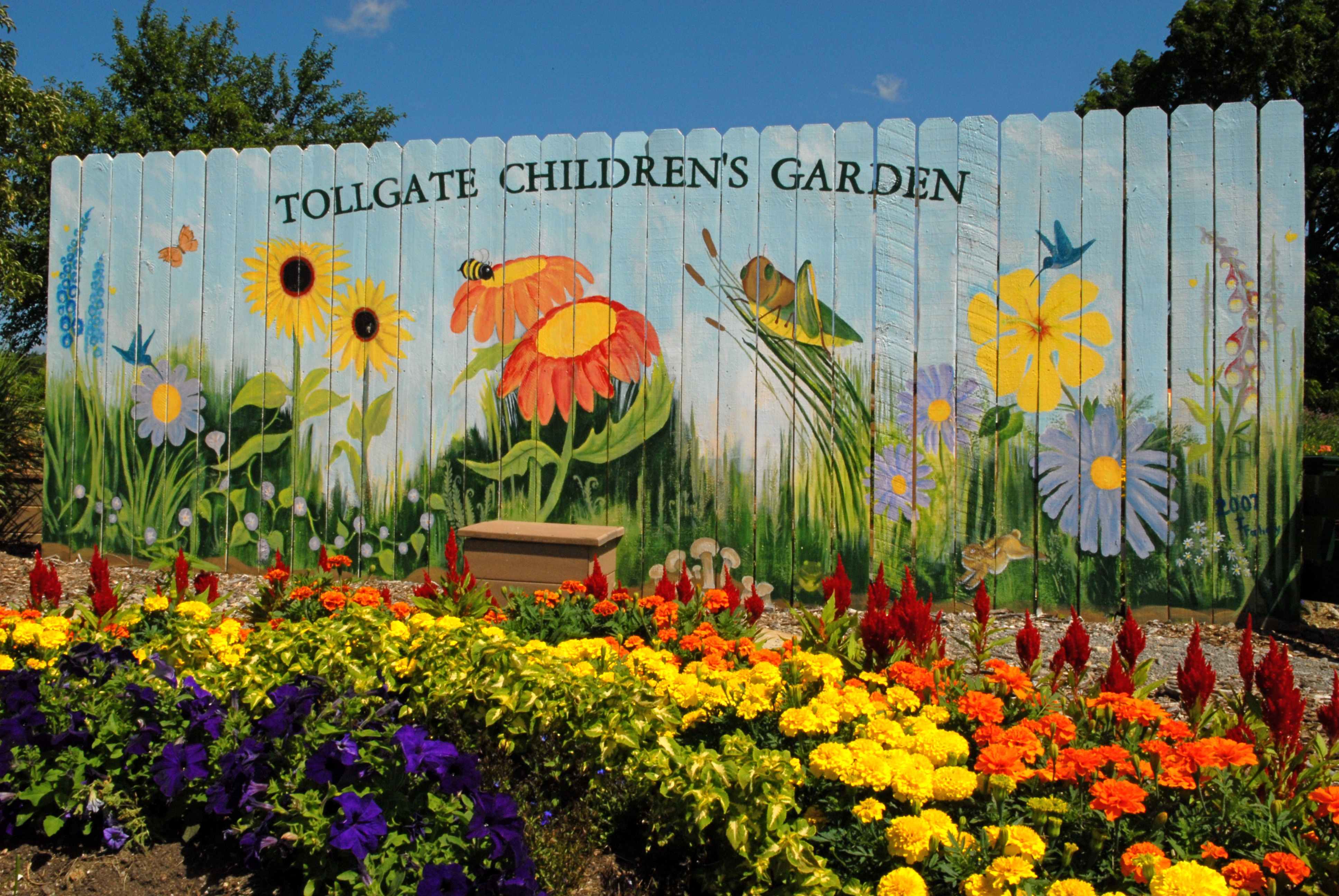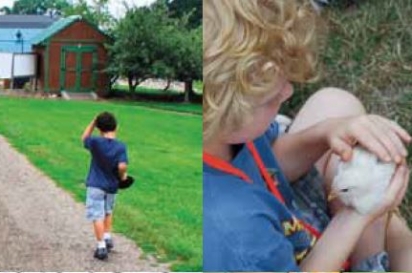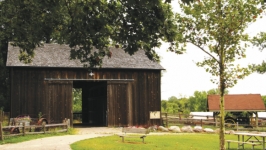Tollgate Camps Bring Kids to the Farm All Year Long
It is the dead of winter at the Michigan State University Extension’s Tollgate Education Center and Farm in Novi, and the fields and orchards are entombed in snow and ice. Thoughts of crops, vegetables and farm stands seem like a faraway dream. On this frigid, desolate Monday in January, a group of 13 elementary-aged children are seated around a table inside a converted pig-house-turned-classroom, dicing apples and shredding potatoes.
The children are here for a special Martin Luther King Day educational session called “Healthy You, Healthy Earth through Eating Locally.” The session is designed to teach kids about where their food comes from and the value of eating local, both for their own health and for that of the planet. As the children slice and dice, teachers talk about the ins and outs of apple orchards and potato farming. Slowly the fragrance of potato pancakes frying on a griddle begins to fill the room.
Apples and potatoes are two locally produced foods that are available in Michigan at this time of year, says Alan Jaros, education coordinator at the farm. The idea behind the exercise, in addition to providing a tasty snack, is to introduce the concept of seasonality. “We are trying to instill in them at a young age an interest in local food, because we know there are so many barriers to eating local,” he says. Those barriers, according to Jaros, include awareness and comfort.
“People just aren’t aware of the options, and many are intimidated by the farmers’ market environment,” says Jaros. The program aims to help bridge that awareness and build a comfort level by equipping kids with knowledge about where their food comes and why it is healthy for their bodies and the planet to choose local foods. In addition to learning about food, the students sharpen their math skills by learning about fractions as they chop the apples and potatoes.
“All of our learning programs are experiential in nature,” says Jaros, who has a background in adult education and human resources development from Oakland University. Prior to coming to Tollgate, he worked at Bowers Farm in Bloomfield Hills, where he developed food and farming education programs in partnership with the Bloomfield Hills School District.
A second barrier to eating local, according to Jaros, is access. That barrier is more prevalent in urban, lower-income communities, he explains. To address this barrier, Tollgate partners with disadvantaged communities in Ferndale, Detroit, Southfield and Hamtramck on a school-to-farm program to bring children to the farm for field trips where they can learn about growing and eating healthy food.
In addition to this MLK Day camp, Tollgate offers several other programs designed to involve kids in growing food and eating local. A February winter break camp acquaints kids with meeting the needs of farm animals throughout the winter, including feeding and egg collecting, and an April maple sugaring camp allows kids to experience firsthand where the sweet stuff they put on their pancakes comes from.
An Outdoor Classroom Workshop Series offers educational opportunities for teachers on how to bring the farm back to the school, covering topics such as starting and sustaining school gardens, utilizing hoop houses and greenhouses for education and how to develop youth farm stands.
Tollgate’s summer program includes weeklong day camps on a variety of topics that teach concepts through a “do, reflect, apply” experiential learning model. A Bats, Bees and Butterflies camp allows children to explore the world of pollinators to understand the critical role they play in plant propagation and agriculture. A Green Science camp explores questions such as how milk becomes ice cream and how pumpkins grow so big. A Careers in Natural Resources camp acquaints kids with options for pursuing careers in natural resources and environmental stewardship.
Tollgate also hosts a Sun, Water & Seeds 4-H club, which is run independently by area parents. The 4-H club grows crops in a hoop house on Tollgate’s property and raises free-range heritage turkeys. The produce is sold at a weekly farm stand on Tollgate’s property throughout the harvest season.
The farm was purchased in 1831 and settled in 1836 by the Bassett family, who continued to farm until 1951, when it sold the farm to Adolph and Ginger Meyer of Birmingham. The Meyer family retained the farm even as the land around it began to urbanize. In 1987, the Meyers formed the Americana Foundation—dedicated to preserving farmland and expressions of American heritage—and donated the property to Michigan State University to use the farm as an educational facility.
Today, the farm spans the original 160 acres, occupying several buildings that were once barns that have been converted to conference facilities and classrooms. A now-defunct silo serves as a tiny historical museum for the farm. The former farmhouse, built sometime between 1840 and 1855, houses the offices of the Americana Foundation. Programs are funded through a mix of program revenues and support from MSU Extension, the Americana Foundation and private and corporate donations.
Tollgate is always looking for innovative new program opportunities and partnerships to help connect people with the food they eat, Jaros says. “We are all about building conscious food consumers.”
Learn more at Tollgate Farm







